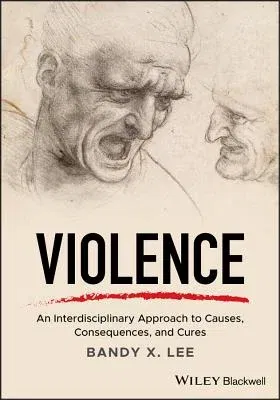A comprehensive overview of the integrative study of violence
Violence continues to be one of the most urgent global public health
problems that contemporary society faces. Suicides and homicides are
increasing at an alarming rate, particularly in younger age groups and
lower-income countries. Historically, the study of violence has been
fragmented across disparate fields of study with little
cross-disciplinary collaboration, thus creating a roadblock to decoding
the underlying processes that give rise to violence and hindering
efforts in research and prevention. Violence: An Interdisciplinary
Approach to Causes, Consequences, and Cures assembles and organizes
current information into one comprehensive volume, introducing students
to the multiple sectors, disciplines, and practices that collectively
comprise the study of violence.
This innovative textbook presents a unified perspective that integrates
the sociological, biological, politico-economic, structural, and
environmental underpinnings of violence. Each chapter examines a
distinct point of learning, beginning with an overview of the content
and concluding with discussion questions and an analytical summary. The
chapters focus on key domains of research encouraging interdisciplinary
investigation and helping students to develop critical analytical skills
and form their own conclusions.
- Fills a significant gap in the field by providing a coherent text that
consolidates information on the multiple aspects of violence
- Examines current legal, medical, public health, and policy approaches
to violence prevention and their application within a global context
- Illustrates how similar causes of violence may have dissimilar
manifestations
- Presents a multidisciplinary examination of the symptoms and
underlying processes of violence
- Offers a thorough yet accessible learning framework to undergraduate
and graduate students without prior knowledge of the study of violence
More than just an accumulation of facts and data, this essential text
offers a broad introduction to a thinking process that can produce
rigorous scholarship across disciplines and lead to a deeper
understanding of violence in its many forms.

